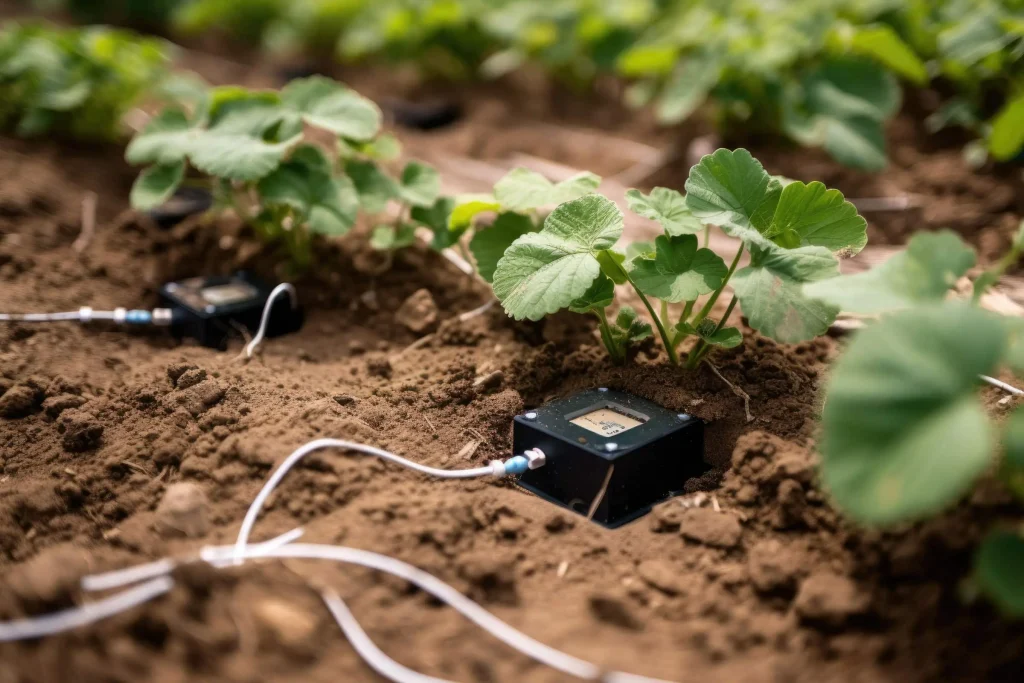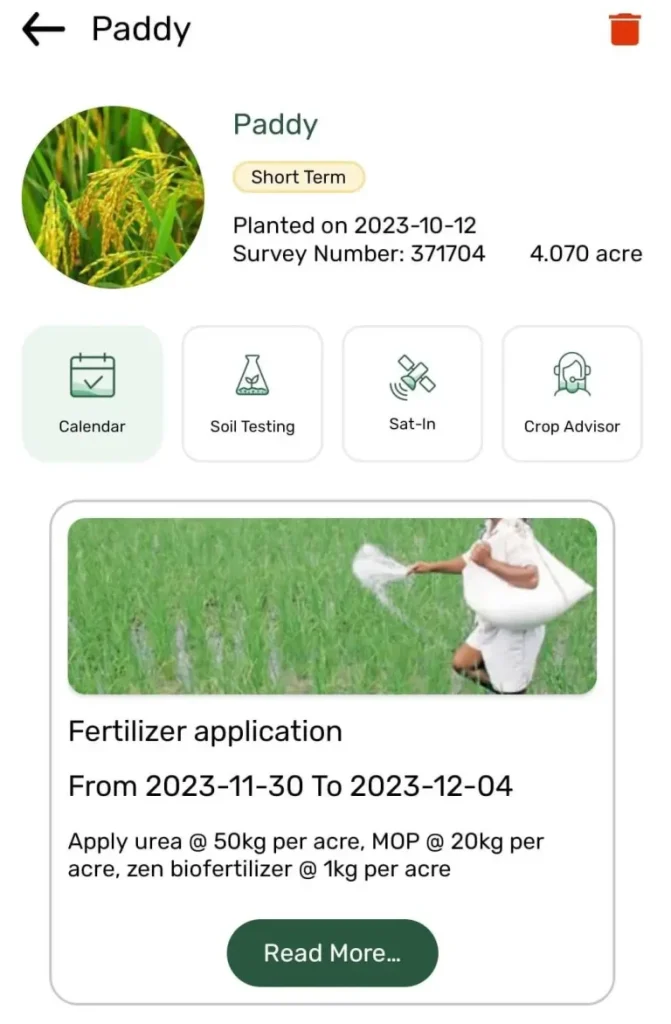Isn’t it frustrating when your crops don’t yield as expected, even after all your hard work? Or when the cost of fertilisers and water keeps rising but profits stay the same? These are struggles most farmers face today. But what if there was a way to solve these problems with the help of technology? Imagine knowing exactly when your crops need water or spotting pest issues before they get out of hand. This is where smart farming comes into play—using modern solutions to help you make better decisions and get more from your land without increasing your costs.
Smart farming uses tools like precision farming, data-driven decisions, and automated machinery. These help farmers meet the growing demand for food while saving resources. Let’s see how these smart techniques are changing agriculture. We’ll also look at what it means for farmers and how AgriApp is part of this revolution.

Smart Farming Techniques That Are Changing Agriculture
1) Precision Farming
One of the key pillars of smart farming is precision farming. This technique allows farmers to monitor and manage fields with unprecedented accuracy. By using data collected from sensors, drones, and satellites, farmers can track real-time soil moisture, temperature, and crop health.
This precise data enables farmers to optimise inputs like water, fertilisers, and pesticides, reducing waste and increasing crop yields. For example, if one part of the field needs more water than another, precision irrigation systems ensure the right amount is delivered exactly where it’s needed.
2) IoT in Agriculture
The Internet of Things (IoT) is becoming a major player in agriculture. Sensors installed in fields or on equipment provide real-time data about weather conditions, soil health, and crop growth. This data helps farmers make informed decisions faster and more effectively.
It can also predict potential issues before they arise—whether that’s a pest infestation or a water shortage. For example, smart irrigation systems connected to IoT sensors can automate watering schedules based on real-time soil moisture levels, reducing water usage while maintaining crop health.
3) Automation and Robotics
Labour shortages are a common problem in agriculture. Automation and robotics are helping to fill this gap. Technologies like automated tractors and harvesters reduce the need for manual labour. Drones can also spray crops efficiently.
These tools save time and increase productivity. For example, drones can cover large areas quickly. They make it easier for farmers to monitor crops, check plant health, and apply fertilisers or pesticides to specific areas.
4) Climate-Smart Agriculture
Climate change is putting immense pressure on farmers to adapt to new environmental conditions. Climate-smart agriculture focuses on sustainable practices that mitigate the impact of climate change.
This includes practices like crop rotation, agroforestry, and organic farming, as well as integrating renewable energy sources like solar-powered irrigation systems. These techniques help farmers adapt to changing weather patterns, improve soil health, and reduce greenhouse gas emissions.
How Smart Farming Helps Farmers

- Increase Productivity While Reducing Waste
By using precision farming and IoT technologies, farmers can make data-driven decisions that lead to higher crop yields and reduced waste of water, fertilisers, and other resources. - Improve Resource Management
Automated systems and real-time data from sensors help farmers optimise the use of water, soil nutrients, and energy, improving both productivity and sustainability. - Enhance Food Security
Smart farming techniques like vertical farming and hydroponics allow crops to be grown in smaller spaces, even in urban areas, helping to ensure a reliable food supply despite growing populations and shrinking agricultural land. - Adapting to Climate Change
By embracing climate-smart practices, farmers can better manage the effects of unpredictable weather patterns and reduce the environmental impact of their farming operations.
How AgriApp Enabling the Smart Farming Era
AgriApp is helping farmers easily adapt to these new technologies. As a reliable agritech start-up, AgriApp provides various tools and services to help farmers improve crop production and manage their farms better.

- Personalized Crop Calendar: AgriApp helps farmers with real-time operation management through a customized crop calendar. This feature allows them to plan for upcoming farming tasks based on specific crop cycles, ensuring timely interventions and better yields.
- Real-time Agro Advisory: Farmers can access real-time expert advice on a variety of issues, including weather forecasts, soil health, and disease management, directly through the app in their local language.
- Precision and Predictive Agriculture: AgriApp’s focus on precision agriculture allows farmers to benefit from predictive insights based on data, ensuring better decision-making, reduced input costs, and higher yields.
- Marketplace and Networking: Through AgriApp, farmers can also access a digital marketplace that connects them with agri-retailers, experts, and service providers, simplifying the procurement of seeds, fertilisers, and other agricultural essentials.
These tools from AgriApp are just ways to help you take advantage of modern technology in your farming. Like everything else in agriculture, results come with time and experience. With AgriApp’s support, farmers can improve their crop yields and manage their farms better, step by step. At the end of the day, farming is about learning as you go, and AgriApp is there to guide you through this journey towards smarter, more efficient farming practices.